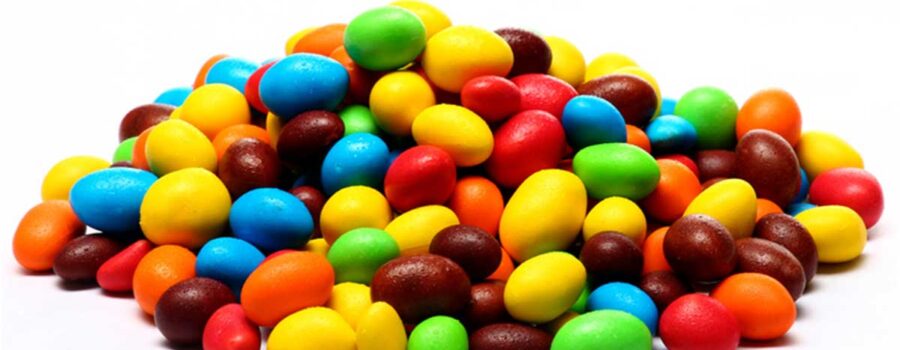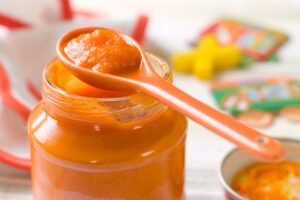As a dad who cares about what goes into my family’s bodies, I’ve been doing some research into processed foods lately, beyond the Skittles Ban. You might have heard about the California State Assembly’s proposed bill, AB 418. It’s looking to ban several ingredients we often find in processed foods. Red dye No. 3 – the stuff that makes Skittles colorful – is on the chopping block. But here’s the thing, friends, this is only the tip of the iceberg. There are so many other possibly harmful ingredients lurking in our snacks and quick dinners.
What’s Up with AB 418?
Assemblymember Jesse Gabriel and fellow Democrat, Buffy Wicks, are spearheading AB 418. The bill is designed to stop the use of red dye No. 3, titanium dioxide, potassium bromate, brominated vegetable oil, and propylparaben in California. Why? Because these ingredients are believed to be harmful. And if all goes as planned, these ingredients will be banned from January 1, 2025.
Even though these ingredients are used in the US, they’re not allowed in the European Union. Why? Because studies have shown that they can increase the risk of cancer, harm to the reproductive and immune systems, and cause behavioral issues in children. But what’s the big deal about red dye No. 3? Well, it’s in over 3,000 products listed in the Environmental Working Group’s Eat Well Guide. From candies like Skittles, Nerds, and Trolli gummies to protein shakes and instant foods.
Not Everyone’s On Board
While some of us are throwing virtual confetti about this bill, there are those who are less than thrilled. Take the National Confectioners Association. They believe there’s no need to ban these ingredients because they’ve all been approved by the U.S. Food and Drug Administration (FDA). And while it’s true that these ingredients are technically considered safe, it’s important to remember that safety levels are established by the Generally Recognized as Safe rule. A rule that doesn’t always require premarket approval if specific criteria are met. So, are we really as safe as we think?
But Wait, There’s More…
Here’s where things get tricky. It’s not just the ingredients listed in AB 418 that we should be worried about. There’s a whole bunch of other stuff in our processed foods that can pose a risk to our health. We’re talking about high levels of sugar, trans fats, and vegetable oils.
Take a seemingly harmless box of cookies. It is highly probable that it contains an abundance of high fructose corn syrup, trans fats, and vegetable oils. And these ingredients can lead to health problems like obesity, insulin resistance, type 2 diabetes, and heart disease.
So, What Can We Do?
It might seem overwhelming, but switching to a healthier diet doesn’t have to happen overnight. Small changes can make a big difference. The first step is becoming a savvy consumer. Learn how to read food labels. Look beyond the calorie content. Pay attention to the ingredients. Consider seeking an alternative product if sugar or vegetable oils appear among the first few ingredients listed.
Try to include more whole foods in your diet. These foods brim with essential nutrients and fiber, while remaining free from the harmful additives often present in processed foods. And don’t be afraid to make homemade versions of your favorite processed foods. Cooking can be a fun family activity, and you’ll know exactly what’s in your meals.
Policy and Regulation
It’s important to remember that it’s not all about us. Policies and regulations play a big role in shaping our food environment. While AB 418 is a step in the right direction, we need more comprehensive policies that tackle the issue of unhealthy additives in our foods. This can include things like limiting harmful additives, promoting clear food labeling, addressing the marketing of unhealthy foods to kids, and ensuring that healthy food options are affordable and accessible to everyone.
The Takeaway
So, while the proposed ban in California is a move towards safer food, we need to remember that there are many other potentially harmful substances in our diet. It’s up to us to make informed choices and support policies that shift towards a healthier, less processed food environment. Let’s shift our focus, folks, and examine the broader perspective – the dangers lurking in our processed foods extend beyond a single ingredient.
References:
- “California Assembly Passes First-in-Nation Ban on Chemicals in Processed Foods.” Environmental Working Group, 2023, www.ewg.org/news-insights/news-release/2023/05/california-assembly-passes-first-nation-ban-chemicals-processed.
- “Dangerous Ingredients That Are in Our Food But Shouldn’t Be.” Consumer Reports, 2023, www.consumerreports.org/health/food-additives/dangerous-ingredients-that-are-in-our-food-but-shouldnt-be-a4054710317/.
- “Popular Easter candy Peeps contains additive linked to cancer, Consumer Reports says.” CNN, 2023, www.cnn.com/2023/04/07/health/red-dye-no-3-peeps-wellness/index.html.
- “California bill aims to ban sale of popular candies containing ingredients that may cause health issues.” CNN, 2023, www.cnn.com/2023/03/23/health/red-dye-no-3-bill-cancer-risk-wellness/index.html.
- Miller, Mark D et al. “Potential impacts of synthetic food dyes on activity and attention in children: a review of the human and animal evidence.” Environmental health : a global access science source vol. 21,1 45. 29 Apr. 2022, doi:10.1186/s12940-022-00849-9
- Dhaka, Vandana et al. “Trans fats-sources, health risks and alternative approach – A review.” Journal of food science and technology vol. 48,5 (2011): 534-41. doi:10.1007/s13197-010-0225-8
- Mai, Brandon H, and Liang-Jun Yan. “The negative and detrimental effects of high fructose on the liver, with special reference to metabolic disorders.” Diabetes, metabolic syndrome and obesity : targets and therapy vol. 12 821-826. 27 May. 2019, doi:10.2147/DMSO.S198968
- Mboma, Jean et al. “Effects of Cyclic Fatty Acid Monomers from Heated Vegetable Oil on Markers of Inflammation and Oxidative Stress in Male Wistar Rats.” Journal of agricultural and food chemistry vol. 66,27 (2018): 7172-7180. doi:10.1021/acs.jafc.8b01836
- Baraldi, Larissa Galastri et al. “Consumption of ultra-processed foods and associated sociodemographic factors in the USA between 2007 and 2012: evidence from a nationally representative cross-sectional study.” BMJ open vol. 8,3 e020574. 9 Mar. 2018, doi:10.1136/bmjopen-2017-020574








